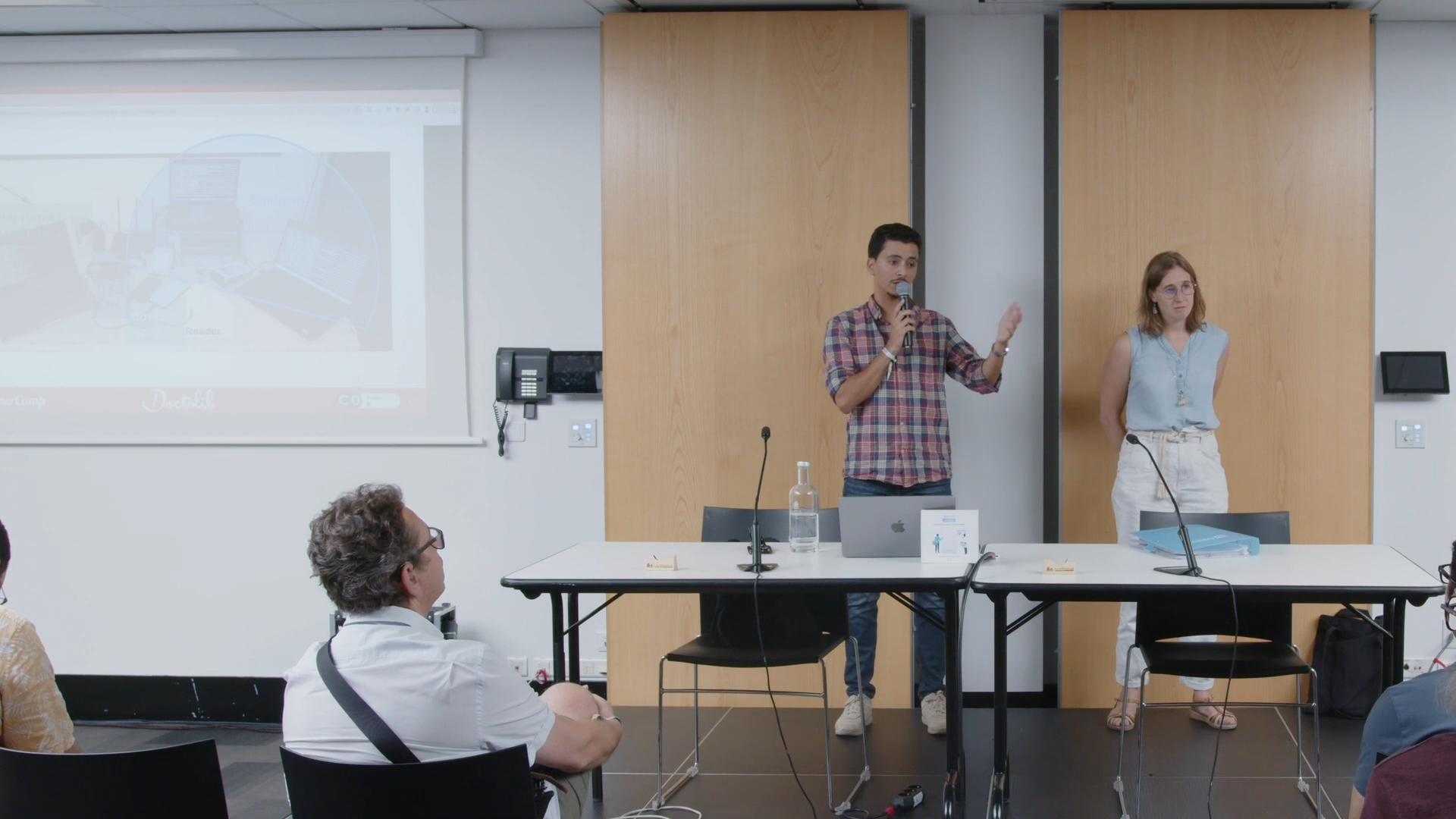Last updated: 16 Apr 2024
2 mins read
Last week was my first time being at a conference from the other side of the stage, that is, as a speaker. With Elise Chouleur, a colleague of mine, we gave a talk on how we successfuly integrated a card reader into an already existing full-software test suite. If you’re interested, here is a link to the talk (in French).
I wanted to share some thoughts that can be seen as self-criticism or pieces of advice for better speaking performances.
Rehearsing is very useful
We had rehearsed at least 4 or 5 times, most of them only between us, and a few times in front of other colleagues (unfortunately I had to do it remotely). Rehearsing is key because it allows you to better prepare your speech for D-Day: the more you rehearse, the better you know what you need to deliver when talking, and the less you are susceptible to forget the key points of your talk, whether they are present in the slides or not. It is also necessary to calibrate your speaking time. By rehearsing, you can fine-tune the time you want to allocate to each part of the talk. And as a result, it’s easier to spot situations where you’re running out of time, or too much ahead of it.
Try to occupy both hands
Find the most comfortable use of your hands. Personally, I found that speaking with both hands on the microphone is more reassuring so switching to it from time to time was really helpful to concentrate on other things than not knowing what do with my arms.
Breathe, don’t rush, allow some time during transitions
This is definitely waaay easier said than done, and is most probably my hardest problem when publicly speaking. Don’t be afraid to make variable-time stops when speaking.
Don’t be influenced by the audience’s facial expressions
I guess one of the reasons why I got easily distracted and stressful during the presentation was that I misinterpreted some of the audience’s facial expressions. Although I assume the vast majority of the audience was not knowledgeable on the topic, focusing too much on the audience made me think their reactions were bad judgements on the form or the content of the presentation.